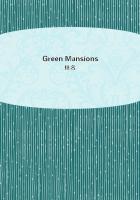"Remember," said Rowland, "whom you will have to face.""I remember," the excellent fellow answered."There was nothing I could ever do for him in life; I will do what I can now."He went off, and Rowland stayed there alone.He watched for seven long hours, and his vigil was forever memorable.
The most rational of men was for an hour the most passionate.
He reviled himself with transcendent bitterness, he accused himself of cruelty and injustice, he would have lain down there in Roderick's place to unsay the words that had yesterday driven him forth on his lonely ramble.
Roderick had been fond of saying that there are such things as necessary follies, and Rowland was now proving it.
At last he grew almost used to the dumb exultation of the cliff above him.He saw that Roderick was a mass of hideous injury, and he tried to understand what had happened.
Not that it helped him; before that confounding mortality one hypothesis after another faltered and swooned away.
Roderick's passionate walk had carried him farther and higher than he knew; he had outstayed, supposably, the first menace of the storm, and perhaps even found a defiant entertainment in watching it.Perhaps he had simply lost himself.
The tempest had overtaken him, and when he tried to return, it was too late.He had attempted to descend the cliff in the darkness, he had made the inevitable slip, and whether he had fallen fifty feet or three hundred little mattered.
The condition of his body indicated the shorter fall.
Now that all was over, Rowland understood how exclusively, for two years, Roderick had filled his life.
His occupation was gone.
Singleton came back with four men--one of them the landlord of the inn.
They had formed a sort of rude bier of the frame of a chaise a porteurs, and by taking a very round-about course homeward were able to follow a tolerably level path and carry their burden with a certain decency.
To Rowland it seemed as if the little procession would never reach the inn; but as they drew near it he would have given his right hand for a longer delay.The people of the inn came forward to meet them, in a little silent, solemn convoy.In the doorway, clinging together, appeared the two bereaved women.Mrs.Hudson tottered forward with outstretched hands and the expression of a blind person; but before she reached her son, Mary Garland had rushed past her, and, in the face of the staring, pitying, awe-stricken crowd, had flung herself, with the magnificent movement of one whose rights were supreme, and with a loud, tremendous cry, upon the senseless vestige of her love.
That cry still lives in Rowland's ears.It interposes, persistently, against the reflection that when he sometimes--very rarely--sees her, she is unreservedly kind to him;against the memory that during the dreary journey back to America, made of course with his assistance, there was a great frankness in her gratitude, a great gratitude in her frankness.
Miss Garland lives with Mrs.Hudson, at Northampton, where Rowland visits his cousin Cecilia more frequently than of old.
When he calls upon Miss Garland he never sees Mrs.Hudson.
Cecilia, who, having her shrewd impression that he comes to see Miss Garland as much as to see herself, does not feel obliged to seem unduly flattered, calls him, whenever he reappears, the most restless of mortals.But he always says to her in answer, "No, I assure you I am the most patient!"End














